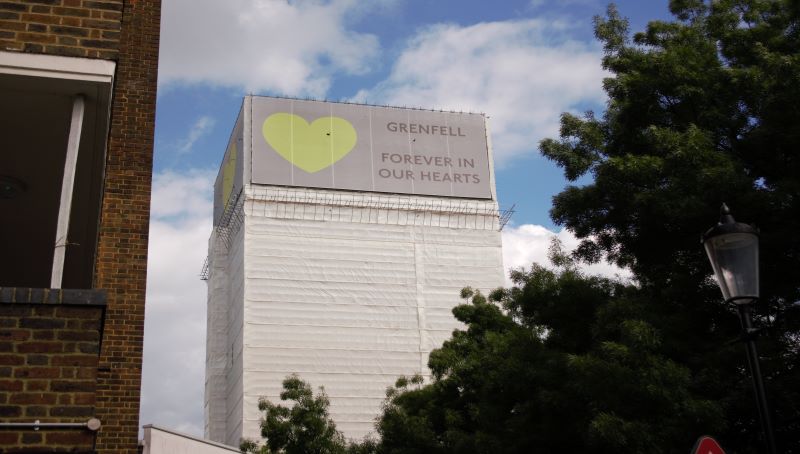
By Danielle Aumord.
Islamophobia is tackled head on at the inquiry (27th June – 7th July 2022)
“Racism and discrimination, we say, played a very real part in the response to this tragedy. The playing field was not level. It never has been,” said Allison Munroe QC, representing one of the groups of Grenfell bereaved and survivors.
She described racism and discrimination as “the elephant in the room” as she read from a previously unseen risk assessment produced by the Kensington and Chelsea branch of the Metropolitan Police four days after the fire.
“There is an expectation that the final death toll from the fire could rise substantially and with the cause still unknown, any subsequent disclosure could have an impact on community tensions,” the report said. It also warned of a risk of “outbreaks of crime and/or disorder within hours”.
“Especially when the majority of those affected are believed to come from a Muslim cultural background, combined with the incident occurring during the [holy] month of Ramadan.”
“Members of the panel, this is Islamophobia,” Ms. Munroe told the public inquiry.
Initially – in the days after the fire – the reported death toll was unclear and this was a major issue of distress and distrust for the local community. Rumours were even circulating that it was being withheld deliberately to minimise public anger.
On the day that the Met. Police’s document was produced – the death toll was estimated as 79.
Bereaved and Grenfell fire survivors are reported to be furious with the document. “We are disgusted, horrified. We are angry… Maybe this is why justice for people from our class and culture never progresses,” said a spokesperson for Grenfell United.
In defence of the Metropolitan Police, Andrew Warnock QC, noted that the passage quoted by Ms. Munroe discussed working with “community leaders from local Mosques…to support those affected” and “community leaders from other faith groups”.
He told the public inquiry: “The [Metropolitan Police] sought to work in a positive way with all those affected by the tragedy. While it will not have got everything right, it would strongly refute any suggestion that Islamophobia affected its response to the tragedy.”
The inquiry have also heard two days of evidence from toxicology expert Professor Purser. He was asked to give his views on the cause and time of death of the 72 victims, as well as the contribution of various materials to the toxic smoke they inhaled.
The Professor spoke on the impact of the smoke conditions on the residents who were trapped. He explained that as someone begins to breathe in smoke, they are increasing the percentage of toxins in their blood. When they pass certain thresholds, they will collapse and die, he also said.
His studies, where he examined blood samples from both the victims and survivors of the Grenfell fire, concluded that it was likely the deaths of those found inside the tower were caused by smoke rather than flames.
The conditions in the landings outside the six flats on each floor – were extremely severe in terms of smoke, with conditions that could cause someone to collapse within three minutes, he explained to the inquiry. But this depended on how much smoke they had already inhaled before entering the staircase. If they had already breathed in a lot before entering the stairwell, their chances of surviving were much lower.
This was the reason why some of the people at Grenfell on the night of the fire – were able to descend and escape from the top floor – even after the stairs had filled with smoke – whilst others fatally collapsed almost instantly on entering the stairwell.
Professor Purser said that the lobbies filling with smoke so rapidly in the early stages of the fire was a key factor in discouraging people from leaving their flats – especially those with children or with disabilities. “I feel [this] strongly inhibited those who had remained in their flats from attempting to escape. [It] led to many of them remaining in their flats and ultimately led to them being overcome by asphyxiant gases and dying in their flats.
He added that not only did they have “the immediate problem of the horrible conditions they were facing in the lobby but they also had the question of, ‘If I were to make it through this lobby to the stair, what’s it going to be like?’”





